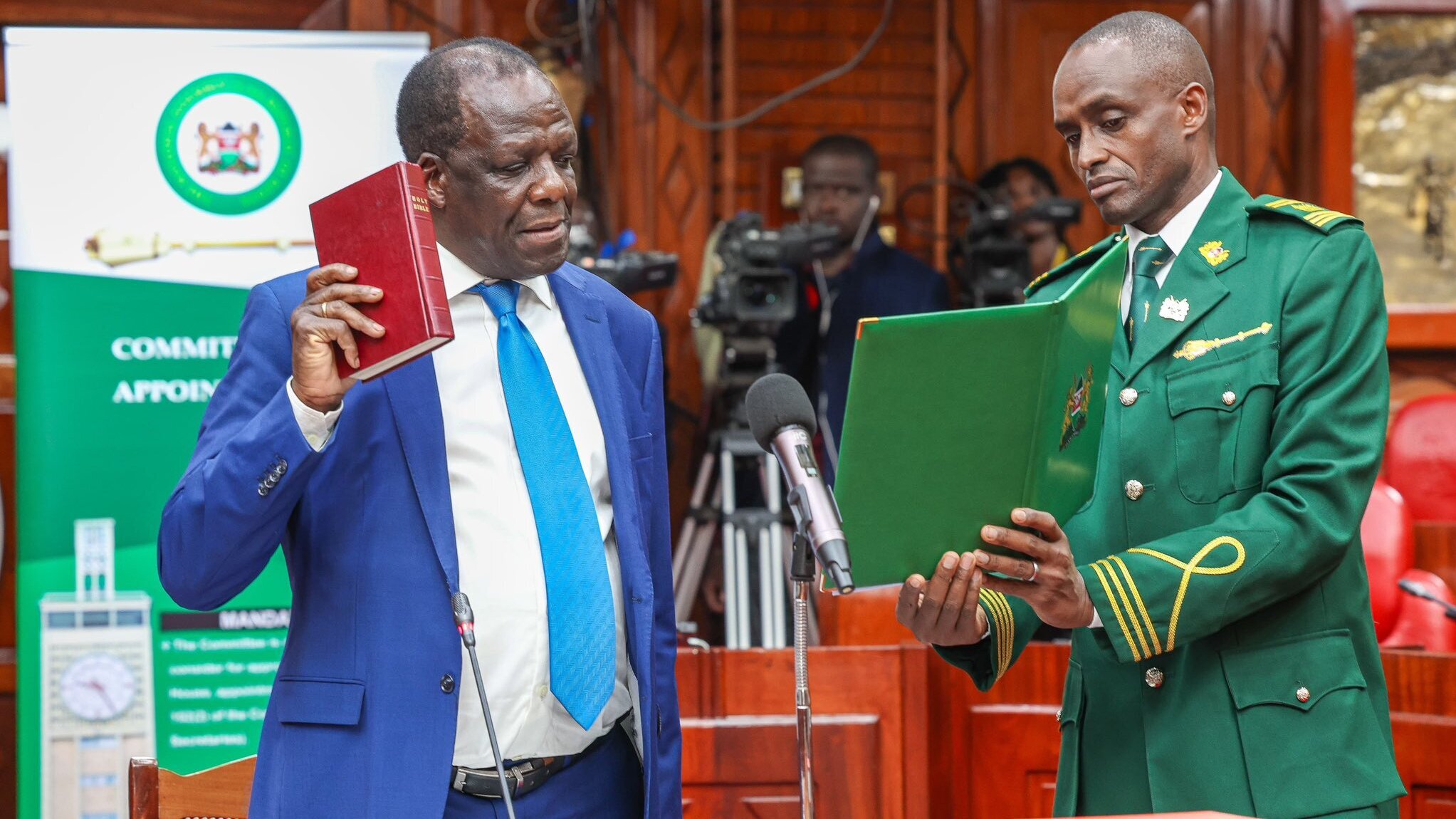Vetting is over: What awaits Ruto's 'broad-based' CS nominees

MSMEs portfolio CS nominee Wycliffe Oparanya. Courtesy photo
The Parliamentary Committee on Appointments is finalizing on its report after the rigorous vetting process for President William Ruto’s nominees for the Cabinet slots, where some opposition figures made a cut.
After weeks of scrutiny, probing questions, and public memoranda in support of or against them, the fate of Kenya Kwanza's ‘broad-based’ Cabinet now hangs in the balance.
But what happens next? Let’s delve into the details.
The Parliamentary Committee on Appointments meticulously grilled the nominees, dissecting their qualifications, track records, and suitability for ministerial roles.
The public watched closely as seasoned politicians and fresh faces alike faced intense questioning.
The air crackled with anticipation as each nominee defended their vision for Kenya’s future.
On August 4, 2024, the vetting process was concluded.
Over 1300 public submissions flooded the committee, with 187 submitted under oath—a testament to the public’s engagement. The nominees’ financial disclosures revealed a combined net worth amounting to billions.
Questions lingered: How had their fortunes changed over the past 20 months? Were there discrepancies?
Following this conclusion of the four-day vetting exercise which began on August 1, 2024, when a panel of MPs was tasked with the responsibility to vet the cabinet secretaries.
On the first day, the committee chaired by Speaker of National Assembly Moses Wetangula vetted five CS nominees.
Cabinet secretaries in the new Ruto cabinet formation will now await to know their fate after the lengthy sessions with the vetting committee.
On Monday, the committee convened a meeting to finalize the report on those vetted. This report, includes recommendations for each nominee and will be presented in the parliament on Tuesday ahead of the debate as Kenyans await parliament's response.
Now, the ball is in the Parliament’s court. In the coming days, lawmakers will cast their votes to either approve or reject each of the nominees.
If confirmed, the head of state will officially appoint them to their ministerial posts and if not, he will be required to submit a new nominee for the specific ministry for consideration.
If approved, the CS nominees will take an oath of office before taking up their responsibilities in the Cabinet. The nation holds its breath, wondering who will steer Kenya’s ship through the stormy waters of governance.
Beyond the political theater, ordinary Kenyans eagerly await the outcomes. Will the new cabinet prioritize healthcare, education, or infrastructure? Can they tackle corruption head-on? The decisions made within the hallowed chambers of Parliament will reverberate across the nation, shaping policies, budgets, and citizens’ lives.
This process comes amidst protests from the Gen-Zs who continue to show their dissatisfaction with the Kenya Kwanza administration.
The protests are expected to happen on Thursday in what has been themed as a Nane-Nane.
The protesters who maintain are leaderless, through various social networks have threatened to occupy the State House.
As the sun sets over Nairobi, the nation watches—a blend of hope, skepticism, and curiosity. Kenya’s destiny rests in the hands of its elected representatives, and the echoes of vetting questions linger in the corridors of power.
